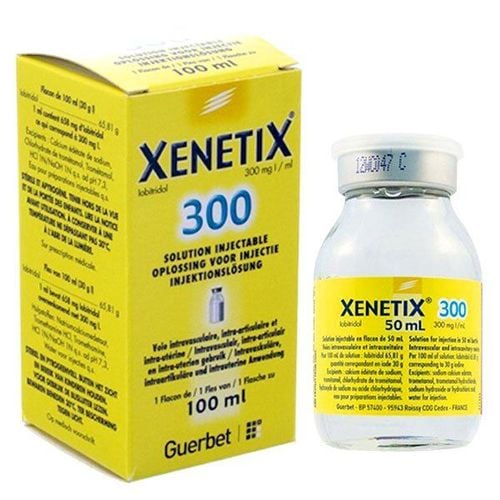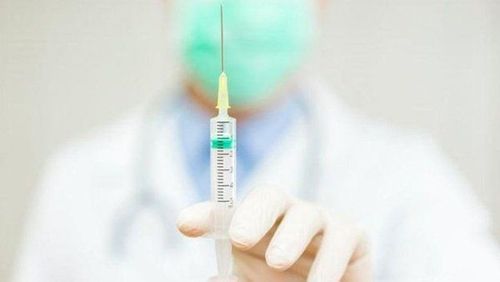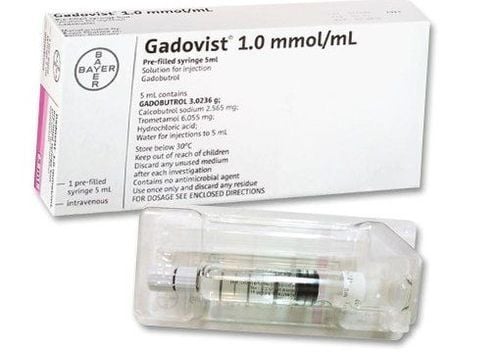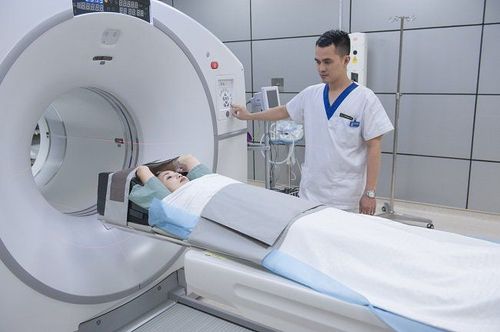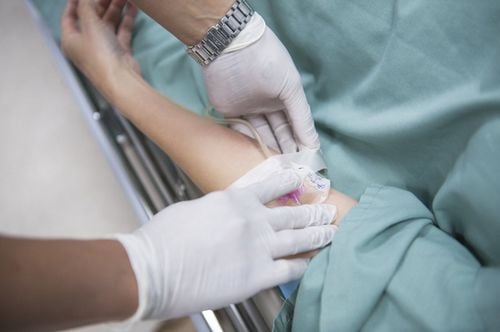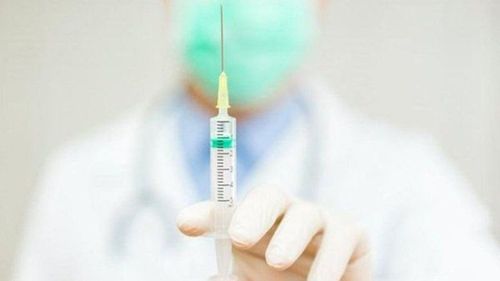This is an automatically translated article.
Posted by Master, Doctor Pham Manh Chung- Department of Diagnostic Imaging - Vinmec Ha Long International Hospital
Contrast agents are iodine-containing substances used to enhance the contrast levels of body structures or fluids during imaging studies. In addition to the diagnostic benefits, the use of contrast agents can be accompanied by some undesirable side effects.
1. When does a CT scan require contrast injection?
Most cases of computed tomography scan to accurately diagnose the disease require contrast injection, specifically:
Computed tomography of the abdomen - subframe requires contrast injection to diagnose pathologies in the viscera such as hepatobiliary, pancreatic, spleen, urinary system, utero-ovarian and digestive system pathologies. Suspected cases of tumor. Most cases of inflammation and abscess require contrast injection, except pneumonia, which has been diagnosed with certainty and does not need to be differentiated from other diseases. Vascular pathology such as aneurysm, pseudoaneurysm, vascular malformation, arterial dissection, arterial occlusive stenosis... Some special cases: Finding the source of the isolated pulmonary vasculature, assessing the reperfusion area of the lesion, diagnose the degree of septalization of the subacute subdural hematoma,...
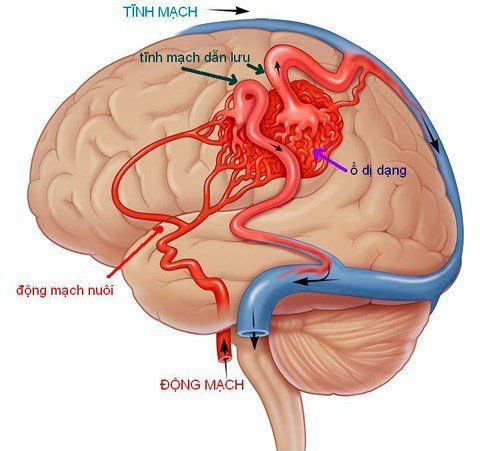
Dị dạng mạch máu não
2. Contraindications for contrast in CT
2.1 Relative contraindications People with liver failure, decompensated heart failure People with grade III, IV kidney failure. If an injection is required, the physician should plan the patient's hemodialysis immediately after the contrast is injected. People with multiple myeloma, especially patients with oliguria. If computed tomography is required, fluid should be given to the patient. People with a history of drug allergies, history of bronchial asthma, atopic allergies. People with chronic diseases: Diabetes, hyperthyroidism, asthma, sickle cell disease. Pregnancy: The use of non-ionic contrast agents has not been fully demonstrated to be safe in pregnancy. Contrast should not be used during pregnancy unless the benefits outweigh the risks and need to be determined by the physician. Lactation: Contrast secretion into breast milk is very low. Harm to the nursing infant is unlikely. Breastfeeding should be discontinued for at least 24 hours after the contrast scan before re-feeding the infant.

Phụ nữ có thai cần tham vấn ý kiến của bác sĩ trước khi dùng thuốc
2.2 Absolute contraindications People with severe dehydration People who are allergic to iodine
3. Things to keep in mind before, during and after a CT scan with contrast injection
3.1 Before the scan, the doctor will check the safety issues (check list) before injecting contrast such as: history of drug allergy, history of bronchial asthma, diarrhea, dehydration, etc. Do you have diabetes and are taking Metformin, have kidney failure? Indications for testing of renal function: Creatinine (eGFR) is essential to be assessed before contrast is used. Certain circumstances, such as ongoing hemodialysis, acute kidney injury, or the need for urgent imaging for life-threatening situations (eg, suspected serious injury, threatened aortic dissection) may cause A contrast-enhanced CT scan may be considered without waiting for the creatinine results. Discontinue current use of potentially nephrotoxic drugs, especially: non-steroidal anti-inflammatory drugs, diuretics should be discontinued before 24 hours, metformin should be discontinued before 48 hours. ACE inhibitors and receptor blockers do not require strict discontinuation. Patients need to fast for at least 4 hours before contrast injection. If the customer has a history of drug allergy, bronchial asthma, they will be prevented from reacting before being taken to the imaging department for contrast injection.

Người bệnh cần nhịn ăn ít nhất 4 giờ trước khi tiêm thuốc cản quang
3.2 During the shooting The client calms down, breathes gently, is not nervous and is instructed to practice breathing. 3.3 After the scan The client is monitored in the imaging room or recovery room for at least 30 minutes to see if there are any unusual reactions. If there are no abnormalities, the client is directed to return to the clinic. If the patient is being treated as an inpatient, the doctor will have a monitoring regimen appropriate to the patient's current condition. If the patient is an outpatient, without risk factors, he can go home. Drink plenty of water, monitor urine output for 24 hours. If you find that the amount of urine is less than normal, go back to the hospital to check your kidney function. Return to the hospital when there are any unusual signs. The diet is the same as any other normal day.

Người bệnh được theo dõi sau chụp CT có tiêm thuốc cản quang
4. Why should CT with contrast injection be done at Vinmec International General Hospital?
Before the CT scan, the client will be evaluated by leading medical experts about the medical history, personal and family history and safety check (check list of CT with contrast injection) to make sure safety for customers before entering the staff room. A team of good and professional doctors and technicians at Vinmec Medical system will help customers trust their expertise, peace of mind and comfort before, during and after the scan. Modern multi-probe multi-row CT scanner system, helps to accurately detect even small lesions, newly formed lesions. To register for examination and treatment at Vinmec International General Hospital, you can contact Vinmec Health System nationwide, or register online HERE
MORE:
What is a CT scan? In which cases need contrast injection? What is Contrast? Computed tomography - the gold standard in the diagnosis of coronary artery disease





